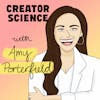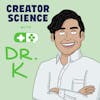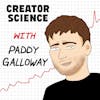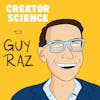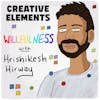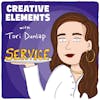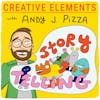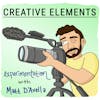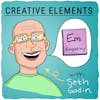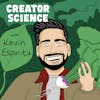
#148: Kevin Espiritu – How Epic Gardening went from a blog to a video empire.
Play EpisodeEpic Gardening has 2.5 million subscribers and nearly 300 million views on YouTube alone.
WATCH
▶️ Watch this episode on YouTube
***
EPISODE DESCRIPTION
Kevin Espiritu is the founder and CEO of Epic Gardening. Epic Gardening has a simple mission: to help people around the world learn how to grow fresh, healthy food, no matter where they live.
And they’ve done a really good job of that – with nearly 300 MILLION views on their YouTube videos alone, Epic Gardening is one of the biggest names in the gardening space. Not only that, but Epic Gardening generates millions of dollars in revenue every year.
And while they may be most known for their multi-platform video content, Epic Gardening began as a blog. Kevin’s team began doing video just a few years ago, but that decision fueled their rapid growth.
So in this episode, you’ll learn:
- How Epic Gardening transitioned from a blog to a media company
- How Kevin operates more like an entrepreneur than a creator
- Why there may be opportunity in old industries
- And how to create things that other people just aren’t willing to
Full transcript and show notes
Follow Kevin on YouTube / TikTok / Instagram / Facebook / Pinterest
Kevin's Website
TIMESTAMPS
00:00 - The YouTube Gardening Empire
01:37 - Kevin Quits His Job to Build Epic Gardening
05:31 - Being an Entrepreneur First
10:43 - There is Massive Opportunity in Old Niches
14:14 - Evaluating Trends and Staying Ahead
18:17 - Short Form vs Long Form Content
20:20 - YouTube Shorts Audiences are Different than Longform
22:01 - Investing $30k into 1st Physical Products
25:01 - TikTok and YouTube KPIs to Look at
26:00 - Asking People For Help
26:50 - How Should a New Creator Start?
28:29 - SEO is Important for Creators
29:39 - YouTube SEO
30:51 - How to Make the Best Video in Your Niche
33:05 - Managing Video Production is Hard
35:00 - Hiring and Managing People as a Creator
40:34 - How to Evaluate Ideas and Opportunities
44:49 - Copycats Can Only Grow So Big
CONNECT
🙏 Make a guest or mailbag request
📝 Check out our curated Playlists
***
SPONSORS
💼 View all sponsors and offers
***
SAY THANKS
💜 Leave a review on Apple Podcasts
Learn more about your ad choices. Visit megaphone.fm/adchoices
Jay Clouse 00:00
Today's guest became a full time creator in 2016. He has nearly two and a half million subscribers on YouTube. And he did it by teaching people one of the oldest activities known to mankind gardening, because it is the oldest, one of the oldest crafts that humanity even participates in the advent of the Internet meant that gardening was sort of there at the start, a lot of the content was sort of gated off in inaccessible ways or just poor formats. It was like dude, why do I have to keep going to like the University of Minnesota and like digging through a PDF to like figure the answer out here. Okay, then I'll make the blog. And that's kind of the where it all started. That's Kevin East burrito, the founder and CEO of epic gardening. With nearly 300 million views on their YouTube videos alone. Epic gardening is one of the biggest names in the gardening space, they generated seven and a half million dollars in 2021 alone. And while they may be most known for their video content, epic Garni began as a blog Kevin's team began doing video just a few years ago, but that decision has led to rapid growth. We went from like, I don't know 275,000 to 500,000 in a year, which is the fastest I've ever grown me shorts have contributed like 50 million views this year compared to our our long form, which is also 50 million views. And that started this year. So in this episode, you'll learn how epic gardening transition from a blog to a media company how Kevin operates more like an entrepreneur than a creator, why there may be new opportunities in old industries and how to create things that other people just aren't willing to. I'd love to hear your thoughts on this episode. As you listen, you can find me on Twitter or Instagram at Jay Clouse tag me say hello. And now let's talk to Kevin about the start of epic gardening.
Kevin Espiritu 01:57
Yeah, it started in 2016. I mean, it was it was a hobby blog and YouTube channel before that, just making like literally $400 A month perhaps. So it was like a nice little supplement and a way to free to kind of practice making content. But yeah, 2016 I had, I left a job and went full time on Epic. I would love to kind of go at a high level year by year through that, because there are probably a lot of people listening to this, who in some regards, started dabbling in this world as early as 2016 and 2017. And are thinking to themselves, wow, that type of growth is possible in this period of time. So I'd love to hear in retrospect, you know, how you would bucket those years in your mind in some of the some of the important decisions or areas of focus you had at the right times to make this possible? Yeah, sure. Yeah. If we start with 2016, call that half a year because I quit, the job in June quit slash would have been fired. So pick your poison, which whichever one it was, my ego wants to say I quit more than I would have been fired. But either way. So yeah, that that year was really like scale up, it was like systemize, and figure out how to actually generate some sustainable income. Like I said, it was probably making 400 bucks a month, the epic Empire at that time. So then it was write a bunch of articles on on gardening, started trying to codify some of the knowledge I've learned over the last couple years of growing and systemize that in some way, and maybe get some initial writing help, and perhaps promote those articles. So really was just blog focused at the time. 2017 is when I had like some semblance of a team. So I hired my first writer. And I kind of moved on to different aspects of the business, like maybe dabbling in YouTube a little bit more. But also just getting out there, like promoting the articles, and commenting and all different sorts of communities and just trying to build a name 2018 would have been a bit more of a dabble into YouTube, a bit more hiring some more writers, the podcast would have launched, I think, probably in 2017, but really would have scaled into 2018. And that was a daily show, like three to five minutes a day. So another example is like getting into a different media format, especially in the garden. Like, if you're in the garden, you're not by definition, watching anything, you might be listening to something. So I was like, Well, if I can get in people's ears, that might be a great way to, you know, put the message out there. 2019 was a big change. That was the first foray into physical product. So I had realized at that point in time, look, you're making revenue off of ads, brands, and perhaps some affiliate deals or something like that. But all those really are third party controlled, you don't really control the source of those in any fundamental way Amazon could change a commission tear or your traffic go down. So I got into products and sold some raised beds that I distributed out of Australia still do to this day. And that was explosive. I mean that immediately that was half of our entire revenue. And so that's when the light bulb went on for me and I was like, yeah, why? Why do all these brand deals not that they're bad, but just why focus on that when I should just be the brand? You know, the the brands paying you for access to an exclusive audience of engaged people? Well, if you're the one who
Kevin Espiritu 05:00
owns that why wouldn't you just serve the audience directly? So that was big year 2020. Obviously, we had global pandemic, which weirdly boosted many categories, mostly ones in the Creator space. Right? So gardening, I'm baking carpentry friends, everything blew up. So that was just, I was just running a gun. I mean, that was like, how much inventory Can I buy? How quickly can I put it up on the store? How quickly can I get it to sell? And the answer was like, immediately, we were selling stuff out like well, before it even arrived at the port. So 2020 was crazy scale up. And then 2021 was even more of that because the pandemic sort of lockdown stuff lasted another year. And so that was another explosive year, this year, it's been, like scale up as far as the team goes. So building out the team, we took on investment late last year, and it's like building up the team, I'd say professionalizing the operation a lot more. So that's my, that's my highest level version of those years.
Jay Clouse 05:51
I hope people listening to this are getting a sense for where I want to go with this conversation. Because even the way you describe those years and your focus, it's like you traversed different identities or could have, you know, depending on where you started, because you started in this place of, okay, blogging, SEO, and then you transition this place that seems more creator, then you transitioned into E commerce. And you know, the topic that the highest level of all of that is like, okay, Kevin's an entrepreneur, like Kevin's thinking about this as a business and not as a lifestyle hobby, necessarily. Can you talk about your your mindset through those years? And if you did, kind of traverse those identities or you know, how that's felt inside your brain as you've made these? Yeah, that's
Kevin Espiritu 06:36
actually a really good question. The interesting thing, I guess, about myself is that I was creating after I was entrepreneurial, or at least trying to, so prior to 2016, I'd worked at a company called ascribe media as an early employee there and learned a lot. That's the only like, real job I've ever had in my life, besides the jobs as a kid before that, so like early 20s to mid mid 20s was mostly me just like, falling on my ass trying a bunch of like, shoddy business ideas, or maybe the idea wasn't shoddy, but my execution was perhaps. So yeah, I mean, identity wise, I've always felt I'm not like a YouTuber, or I'm not a tick tock or an Instagramer, or a podcaster. could technically I'm all of them, but I don't think I'm any of them, nor really an entrepreneur, I guess. So I don't have like a mental conception of some sort of label that I that I am which I don't know how significant that is, or not to the answer of this question. But to me, it helps, because then I don't pigeonhole myself in a way of thought that will hinder potential growth. If I had to pick I'd say, I'm a YouTuber, and maybe a business person or something. But even YouTube, I'm like, I guess I'm not really a traditional YouTuber. So I don't connect to those identities like that. Maybe it's helped.
Jay Clouse 07:50
I do think it helps. Because, you know, I listened to another conversation you had on the authority hacker podcast, and you mentioned that, I think in 2016, you said you made around 17k, total with those $400 months, and 2017 is around 78k. So a lot of people experiencing that type of growth, I think would basically continue what they're doing, and try to just do more of it. Because like, that's a huge growth trajectory. But throughout those years, it was like you were really adding layers to the strategy, you know, because 2018, after that year, is when you said you introduced really, Instagram, YouTube and the podcast and branching out from the article. So I do think that helps to not have an identity you're holding to. But related to identity sometimes is community and the people that you surround yourself with, I imagine those early years, you're probably surrounding yourself with other SEOs. And the advice and direction you would probably get from a lot of people in that community is, yeah, keep doing what you're doing. And here are some changes on that are some ways to enhance it versus Yeah, go do Instagram and YouTube. Yeah, actually, a
Kevin Espiritu 08:55
lot of the SEO is back in those days, because I was very plugged into the SEO community at one time, just could not understand why I was spending time on on Instagram. They're like, well, how does that build links? It doesn't build links, so it doesn't matter. I'm like, what, like, that's not it's a different game. And so you're totally right, like, you know, 17k obviously, not a high income and 2016 and even 78k. I mean, that's, that's gross revenue. And you're running a business, you have costs, you have taxes, etc. So you're not making that much relative to even just any job I could have gotten with my skill set at the time. But yeah, you're right. Like, if I had scaled linearly through the actions I was taking in 2017, I would just be a bigger blog, right, instead of this sort of multimedia thing. And so I think that's what perhaps a lot of creators, I see a lot of creators make this mistake, at least in my opinion, they might have a different goal. So that's totally fine to do it their way. But you know, like a YouTuber, for example, that posts once a week, every week for 10 years, and that's all they want to do, but also is sort of sad that they're not making x, y or z or have a certain level of accomplished and elsewhere, I'm like, Well, yeah, because you're the game, you're playing caps at a certain level, it can only do a certain thing. And so you do have to kind of get out of a particular bubble to go further.
Jay Clouse 10:11
Were you feeling kept in 2018? When you started doing more of the social media discovery platform stuff with Instagram and YouTube?
Kevin Espiritu 10:19
No, I don't think so in 2018, because there was just so much opportunity. That was like a great year. Besides, besides the advent of tick tock, like maybe 2016 1718 was a good couple years for actually growing on on social without having your without it sort of being a slog. So there's a lot of opportunity there. I think that that in 2018, that I started to see as I was like, yeah, if you have all of the media, it doesn't really matter. If you monetize it immediately, because you have all the media and you build, you build a thriving community, just wait, and let the community tell you how to serve them best, which is kind of what happened with those those raised beds, I didn't think about selling those. They just were commented on relentlessly. And I was like, well, maybe I should sell them. Right. It wasn't some genius thought,
Jay Clouse 11:03
speaking of talk to me about the the selection of gardening in the first place, because this is like one of the oldest things in the world like we are in a grant agrarian set the right word. You know, you would think that, from the dawn of the internet, this would be something that would be dominated online, because we've been doing it for forever. But you found this opportunity. And now you guys have the largest gardening education platform online. So how did you identify that? Was there like an insight where you saw there was a gap here? Yeah,
Kevin Espiritu 11:37
I think there for the reasons that you mentioned. That's why it was an opportunity. Also, I loved that. I mean, that was the the first thing is I love doing it. So that that, of course has to come first. But because it is the oldest, one of the oldest crafts that humanity even participates in is sort of mandatory, to some degree, whether you call it farming, or gardening, the advent of the Internet meant that gardening was sort of there at the start, which means that a lot of the content was sort of gated off in inaccessible ways, or just poor formats. And so you know, a lot of gardening information is written still by an older demographic for an older demographic, in the language of someone who already knows what they're talking about, you know, maybe on a on a PDF, which, of course, would be atrocious for SEO, let alone you know, presenting it in a video format in an engaging way from someone who's like, oh, I kind of could be like that guy, or that girl, it just wasn't as accessible. So when I was trying to learn back in the day, I was like, Dude, why do I have to keep going to like, the University of Minnesota and like digging through a PDF to like, figure the answer out here. Okay, then I'll make the blog. And that's kind of the where it all started.
Jay Clouse 12:46
Man, that's such a interesting insight. And so good. You know, I, I aspire to the life of an author a lot of times, and I'll look at some of these authors who have built an incredible life for themselves. And Ryan Holiday is one that comes to mind, because the stuff he writes about. It's ancient stuff. But the really cool thing is, because it kind of like was ancient stuff, and then hadn't really been re skinned, reexamined for modern people, the work you put into creating that canon of work is now like a competitive advantage, it's going to be hard to catch up to him. It's not like there are other people who have studied this in the modern day as much as he has. And so I've been really fascinated by trying to look at more timeless human problems that aren't being re examined in a modern time. I think I think there's opportunity there,
Kevin Espiritu 13:41
dude, for sure. I mean, like, we're seeing this happen everywhere. And actually, the internet's old enough now that you're seeing it re happened to the same, the same person. There's a guy, I don't know his name, but he's a YouTuber who sort of debunks myths that are sort of viral, like viral memes sort of miss scientific things. And so he's an OG YouTuber, and he's having his own sort of content, repurposed. And completely reshot. Of course, it's like they they're taking his concepts. Like, I don't even know what a myth would be off the top of my head, but just make one up in your head. And there'll be a tick tock about it. And he's like, Yeah, I disproved this, like, six years ago, and this YouTube video was 7 million views. But this one has 30 million views in short form. It's the same idea. And I'm like, yeah, it's because that's how people are consuming it today. So the same thing can be repackaged. And yes, I mean, Ryan Holiday obviously has done a fantastic job with his work with the stoics.
Jay Clouse 14:34
You since you basically were tuned into and seemed to have a good start on platforms earlier on in their existence. What are you looking at now? Seems like you mentioned tick tock a couple times seems like tick tock is where the most recent opportunity is, but I'm sure even that window has closed to some degree or is closing. So how do you how do you look at new trends in terms of how people are consumed? Any information in how to be ahead of the curve?
Kevin Espiritu 15:02
Yeah, I mean, tick tock to me, was one of the best things that happened to the Creator landscape in maybe five years or so, because it finally forced every platform to say, Okay, I guess I'll give you reach again, not to say I mean, that's a common complaint. Like all the algorithms aren't giving me rich, I'm not necessarily saying that. I'm just saying that like, tick tock affected the attention landscape in like a seismic way, which then forced Instagram to release reels. And although they will never say it, I'll bet a lot of money that if you use their newest feature, it's more likely to do well than to go put up an IG TV video, the second I dropped reels. So So you know, we went from Tik Tok in 2019. And being one of the first gardening accounts there, if any humans into gardening, you're the only one so the attention goes straight to you, you don't even have to be good. So that's sort of a weird insight. If you're early, you actually can be bad, and you could still grow quicker than someone who's better than you at content. But then yeah, porting that over to IG. We went from like, I don't know, 275,000 to 500,000 in a year, which is the fastest I've ever grown, just by reposting the same things, or also creating new reels, and then shorts this year. I mean, shorts have contributed like 50 million views this year, compared to our our long form, which is also 50 million views. And that started this year. And so it's like, the thing I guess I don't get when I hear a lot of sort of Creators talk about growth, etc, is I'm like, It's not the algorithm that's really saying, oh, like, you know, everyone's watching everyone else. It's actually that people, you know, everyone in aggregate is watching short form. So if you want to fight against a tide, go for it, but you can't really complain that you're getting swept down the river. And so to me, it's like, take a bet on these platforms. I was like, hey, look, worst case tic toc is terrible it tanks. And now I have learned how to make a different type of content, I can probably use it in my other format somehow. So to me, it's it's a no risk bet.
Jay Clouse 17:00
After a quick break, Kevin, and I talk about his approach to short form content. And later, we talk about his process for creating videos. So stick around, I'll be right back. And now back to the show. I think that would probably hang me up if I was in your position, and would actually kind of bums me out to this day, so much of the content we create for social media. It's just gone. You know, you have this, you have this training and writing articles or, you know, at this point, maybe overseeing the creation of articles that have this enduring compounding power in that one asset. Same with YouTube videos. But now that you're super active on social, how do you think about the role of short form as it relates to what long form and having an asset that's leverageable? Over time does for you?
Kevin Espiritu 17:47
Yeah, it is kind of frustrating, right? I mean, back in the early days of, of Instagram, before reels, for example, you do like certainly a post just like an image post or a short square crop video. And you're like, Yeah, this just kind of goes into the Instagram abyss, you don't really recover it, you've edited it, particularly for the platform, it's kind of hard to repurpose, and you're sort of like, actually, where is the ROI, though? It does, it does come down to that. And so my, my thought then was always like, my ROI is in the brains of the people that that content helped. And hopefully that compounds over time. And, and I might not even know, the exact ROI, because it's kind of the same with podcasts, like unless someone goes and downloads the whole back catalogue, it is kind of gone. There's no resurfacing engine there. Except for you, you'll get an email like, Hey, I've actually download your whole podcast. I'm a trucker. And I've sent it to 15 other truckers. And now, you know, there's 15 people out there listening to 300 episodes, that kind of stuff will happen. Right? And so, I don't know, I mean, I guess I just trust that if the content is good enough, valuable enough, it kind of bounces around digitally and offline in a way you can't really manage.
Jay Clouse 18:55
Yeah, it's kind of like the direct marketing versus brand marketing dichotomy, where like direct marketing, you're really measuring return on spend, and brand marketing, you're hoping that it returns, you believe that it does, and you keep investing in it. As long as you don't see signs to the contrary, you keep doing I guess it's
Kevin Espiritu 19:12
like the content variant of that of that dichotomy, right? Yeah, that makes sense.
Jay Clouse 19:17
How do you look at YouTube shorts versus your YouTube long form? Do you think of them as two different audiences? Do you think of them as an intertwined strategy
Kevin Espiritu 19:25
right now, I think of them more as separate audiences than as intertwined. was interesting, though, about gardening is that the short form can be a bite sized piece of the larger tapestry of of content that we have in our library, because it's still at my house or some of our creators houses. And so there is more to say about a particular plant like I don't know dragon fruit, you can give a really unique fact or show it blooming in a time lapse. That's a great short form piece. But if someone does get captivated and obviously the hit rates way lower because the reach is expanded, so you're hit you're hitting someone might be 5% of people might be interested in watching the long form versus 90 If they're searching for it on the normal feed. But still, I mean, that's, that's a huge number, so they can trickle trickle through, I guess I almost view it as an on platform variant of Tik Tok. Because the way that the way that creators are getting huge over the last couple of years is like you blow up on Tik Tok, you then start in an IG, because most of these creators are young enough to not really engage with IG. So they start an IG, maybe they cross post, but then they start a YouTube, they cross posts or YouTube shorts, build an audience there, then they learn how to do long form because they don't understand it. So that's the way people have been building audience. So I don't know. I mean, the question is, How valuable is a long form view versus short form view? Right now I feel like a short form view even on YouTube is like maybe a 10th of the value maybe. But But hopefully, we get better tools to figure that out. Because it's it's clearly eating the world of attention. And I don't know if that's necessarily a good thing if you're trying to sell a product or service or whatever.
Jay Clouse 20:57
So when you made this first bet into physical products, and you bought these raised beds, I heard you say that that was a $30,000 investment to bring these things in. What did that feel like to you at the stage that you were how big of an investment was $30,000? At the time?
Kevin Espiritu 21:13
Let me think, I don't know, I couldn't tell you a rough percentage, but I would say it was maybe how much money did the business have at that time? I mean, I don't think we had over 200,000 in our accounts, I mean, I think we probably had 110 or 120, or something like that. And that was probably there was probably some taxes mixed in there. Like I couldn't even tell you the actual weighting of it. But suffice to say, like, if it was a bet on your net worth, it probably would have been unsound. But, you know, I was like, Well, this is a car. I mean, you're buying like a Camry or something. And in one play, but my logic there was I was like, Okay, well, it's far and away the most requested thing, what's the worst case scenario? I sell them at cost? And I lose a few 1000? Like, that seems fine to me. And then what's the upside, of course, is that you can make your your product margin on that. And so yeah, I mean, that's the scary part for me is that I literally knew zero about ecom. My plan, which I still can't believe I thought this at the time was to buy the container, 20 foot container, so a little smaller than normal. And then I was arranging a self storage facility in San Diego and I was going to have the container land at the port in Long Beach be trucked down to a literal self storage facility like a Costco or something like that unloaded by hand figured out how to get like, like tether laptop there and print and ship orders out of itself. Because I was like, I don't know where to put it, obviously, where do you put it? And then I got wise and talked to a couple friends about ecom. And they're like, What the hell are you doing to just get like a third party logistics company to help you at the start shipping the orders out? And I was like, okay, cool. There you go. So yeah, it was scary. Less. So in the money, I was pretty confident that the risk wasn't big, but it was more scary. And like, just the logistics of what do I actually do?
Jay Clouse 22:56
Yeah, now that you guys have these products that you are selling? Do you see that people are converting from a short form on a product to purchasing? Or does it need to be like an introduction to the larger epic gardening ecosystem before they begin purchasing?
Kevin Espiritu 23:12
I think if it's, if it's a an easily accessible product, like if it's a $10, a little tool or something like that, it's way easier to convert that direct. That being said, it's also hard to attribute perfectly, like from tic toc to a link click to a product page to a conversion. It's like actually quite difficult to attribute that. And be really confident that that's where it came from. So yeah, I mean, I would say yes, on the on the low end. But on the high end, I actually don't even know the answer. It's it's hard to know, even if I didn't have shorts in the epic ecosystem at all, it's still kind of hard to know, because we have so many platforms. It's like, okay, did they come in through the blog, and then click three things get, you know, get a text, and then convert? I don't know, attribution is like, very, I don't know, it's a nightmare.
Jay Clouse 23:57
So what do you pay attention to, to know that things are trending in the right direction? Like what are the KPIs that you're looking at with attribution being difficult to dial in on?
Kevin Espiritu 24:06
Yeah, I mean, I think every platform obviously has sort of a different KPI you want to hold as, as a head, like Tic Toc, for example, I would say, it's really mostly how many views and comments and saves and shares like that kind of thing. It's sort of just raw on platform metrics. And then YouTube, I would say, it'd be it'd be like CTR and retention at the start, but then that dissipates to just views at the end. Because Because really optimizing for CTR and and that sort of thing works. And then if the content fails, it's not you're not going to get views off of that. And so over the longest period of time, actually just optimizing for views is the right thing to do. Except for that when you tell that to people, they're like, Well, okay, well, what do I that's like so right. How do I do that? Exactly. So yeah, it'd be it'd be reach and audience growth.
Jay Clouse 24:57
It sounds like throughout your career, you've had this insight of Let me just go ask somebody who's already solved this, which is such a hack? Well, yeah,
Kevin Espiritu 25:05
I mean, dude, like the things that we're doing as creators is not novel in, like, right. In the aggregate, I actually think it's quite novel, if you were to sum up all the parts of an operation like epic, or these other ones that are out there that are doing incredible things, certainly, that's novel, but like the mechanics of it are not how do you get a container from from, you know, Australia to America, it's been done for decades, someone knows how to do it, just go find the person and have them help. And then you sort of piece together all that knowledge, because we're what our creators typically good at is usually connecting with, with people creating valuable content, we're not typically the best in the business logistics, not not as a sweeping statement, but you get my point,
Jay Clouse 25:46
I think I'm going to put on the hat of creator or aspiring creator who wants to get started and is listening to this. And your story was, you had a passion, you started a blog, then you went to social media and YouTube, then you did EECOM. And now you have all these things working in concert, which is just like, Next Level business? How would you encourage someone starting today in the current landscape?
Kevin Espiritu 26:09
I wish I had a strong answer here, because obviously, the way I did it is probably not ideal. It's kind of slow. But I would say, short form video. I mean, it's probably a trite answer, everyone, everyone would say that. But what else is there right now that's gonna get you rapid iterations. Because to get good at content, you have to do a lot of it and then figure out what works and what doesn't, you have to become more comfortable with yourself and all sorts of different little skill sets. And so I would say short form video is a great way to do it. Tick tock is the most rewarding algorithm right now. Still, I maybe YouTube, but YouTube takes a little bit longer to pick something up if it's actually good, tic TOCs. Good, because it seems to know much better. How to find the audience that something would resonate with, and how to find it quickly and pour gas if it's working, which for you, as a young Creator would tell you, if you're hitting or if you're not much quicker. And the iteration rate is probably what what is most important as a young creator, you just need to figure out how to get good. So I would say tick tock, and then you would probably want to transition much like the flow I was telling you about earlier, like tick tock, you know, IG reels and, and YouTube shorts, and then maybe experiment with like, two to three minute long form videos, and kind of grow yourself into the long form which all of us older creators, we all did long form first. So this odd switch.
Jay Clouse 27:26
What about the current state of SEO and blogging? Where do you see that playing in new creators journey, if at all?
Kevin Espiritu 27:34
I mean, I think it's extremely smart. Especially if you're trying to scale something like like we're trying to do you almost mandatory have to have it, because you have to have like, intent based, customer base or audience based, like how do I do this? What is this? Those types of queries? Yes, certainly, like Tic TOCs eating a little bit of that maybe someone's typing into YouTube, but like Google, still Google, I mean, 98% of the revenue still ads right in that search box. And so to me, it's a totally different brain, though. Like an SEO brain has a totally different brain than a video brain for the most part. I have never seen SEOs be super comfortable video unless they like don't think they're one. And so yeah, I would say let's say a creator like got really big off I don't know carpentry and was doing video stuff, like the smartest play is probably just to hire an editor who knows SEO and can manage some writers and can build you a corpus of content on on in a written format and like learn how to rank it because otherwise you're gonna have to learn SEO. It's like takes kind of a while.
Jay Clouse 28:35
And when I hear people talking about SEO on the show, a lot of times they're talking about Article SEO. Obviously, YouTube has SEO as well as like the second largest search engine in the world. How much does YouTube SEO play into your guys's strategy?
Kevin Espiritu 28:48
Yeah, for us, I think in our space, it actually is significant because let's say we make a video on I don't know, cabbage, and it is just objectively the best video no one can argue it it's for sure like 10 times better than the next best video. We should probably just call it how to grow cabbage complete guy you know what I mean? Because if it's if it truly is the best it's the title won't I don't think will matter that much like you might as well just go straight for the search and let it play out I don't think you should go like I grew and insane cabbage like what you know that but but it kind of depends on the channel too. Like we haven't I have a channel called Epic homesteading, which is much smaller. It's like 165,000 subscribers which which I run more as a personality based channel so titles will be much different and but that's because the topics different like I have I had a video called like I'm sick of my garden. There's no SEO around that there's no search stability to it. So you have to play the the title game a little bit differently.
Jay Clouse 29:49
When we come back, Kevin and I dig in his process for producing long form videos on the epic gardening channel. So don't go anywhere. We'll be right back. And now back to the show. When you're making these videos, let's say let's keep this cabbage example going Yes, I love the idea of us being Cabbage Patch Kids right now. So if you were going to say we're gonna make the best video on growing cabbage, what would your process be to make sure you make the best video on growing cabbage? Like, what are the boxes you're trying to cat? Check to say, objectively, this is better than the other content on YouTube?
Kevin Espiritu 30:21
Yeah, I actually think that's not that hard to do, to be honest with you. So like, the way you would do it, or I would do it is, first of all, I would look at the other cabbage videos, right? I'd say okay, well, there's probably five ones that are even close to good. So you go you go look at those. You say, Okay, what are the titles? What are the thumbnails of those ones? Or what's wrong with the title and thumbnail? What Why is it bad? And then you go, you go look at the content. And you'd say, Okay, well, are they are they missing something fundamental? I mean, that that would be the most obvious thing. But to me, I would go ground up, I say, Well, what what would the best cabbage video beats, so there's like the analysis of the outside, then there's the bottom up sort of thinking, like, well, what would the best cabbage video be, it would probably be a video where you literally grow cabbage from start to finish from seed to harvest, and then layer it in all of the things that make that video engaging. So like a good personality, maybe some humor, beautiful shots, and some crispy B roll, maybe a little bit of music, like all the different things that make videos good. In the packaging of, of the best presentation of the idea, which would be, in my opinion, at least growing something from seed to harvest would show you how to grow cabbage best. Do most people do that? No, it's like pretty hard to do. I mean, the shortest crop would take a month to make that video. So what are we doing now we're growing 25 crops, at least right now, from seed to harvest, starting now, that will drop in spring. And some of those might not even come out this year, they'll come out maybe 24, something like that, because I'm like that, that would be the best. So that's kind of how I think about it.
Jay Clouse 31:54
Yeah, I love that in my mind says Holy shit, that would take forever. That's hard. And you now have to wait, this period of time and layer in? Well, if we want to continue to publish, what are the things we're publishing in the meantime? So you're managing a pipe, a pipeline of a bunch of videos and a bunch of short form and probably written content as well? How do you manage that?
Kevin Espiritu 32:15
Yeah, not super well, right now, to be honest with you, we do have a Head of Content higher than I'm going to be making. Because like, right now I function as CO head of head of like, I'm the main talent. So we have three other creators, but I'm still like the main one. And then I'm also head of content. So it's like one of those has to break and the two that can't break are probably CEO and head of talent. So we need a head of content. So yeah, we need a way, especially in gardening, we need a way to layer a season over the tapestry of platforms and creators that we have, and sort of assign topics and formats and talent to those so that it comes out in this like beautiful symphony, I suppose of content across the year. We don't really have that right now we sort of running gun based on what we're doing at the time. So yeah, I don't have a great answer there yet. But hopefully, that changes.
Jay Clouse 33:08
To be honest. I'm kind of glad that you don't. Because I think that makes this feel a little bit more doable to somebody listening to think that like, well, you are having this incredible success. And there are still things that you don't have down to like the perfect a system level yet. You know, and a lot of people listen to this, they, they probably index much further on the Creator identity. And so all they're thinking about is creating stuff. So I think that's actually probably helpful for them to hear.
Kevin Espiritu 33:35
Yeah, yeah. I mean, dude, I really, I think if you're listening, it's like I just was blogging in a room for 12 hours a day, for three months, when I started this thing. It's like there's nothing super magical about what we've done. Like I think like, I don't know, man, like luck and success, that there's that whole debate of those two sort of Interplay like hard work for slug, it's obviously both. So like epic without the pandemic would be a different company, we'll still be doing very well. But we wouldn't be doing as well as we're doing. Now. That's just the truth. So I would say don't, don't mark yourself to someone else's reality. It's not a good recipe for success.
Jay Clouse 34:09
I would love to talk a little bit about hiring because something else about your story that I admire is how quickly you are willing to hire help. First on the article writing side, I believe, and now you have a team of 20 plus people Yeah, soon to be 80 plus people. Talk to me about how early you think creators should consider hiring and how you would go about doing it. If you
Kevin Espiritu 34:29
have some some revenue coming in. I'd say like, if I let's say I was doing epic again, for example, I would just be hiring dramatically faster than I did. I was too slow to hire really. I mean, the way I hired the first writer, for example, is I had quit the job I was writing. Think about the first 450 articles on the blog. Wow. And then I was like, Hmm, maybe I should do something different now because it doesn't seem like this is going to get me where I want to go. And so I kind of ranked my time in the way You can I was like, Okay, is it? Is this task humanly possible to be done by someone else? Obviously writing is? How important is it that I'm writing? Well, it's kind of important. Like, you have to know about gardening, obviously. Am I the only one who can know about gardening? No. Right. And so that was kind of logic on that. And then every time, I just wanted to move towards my highest leverage activity, and then every time that stopped having that leverage I had to hire. And I think that's really the way to do it. I don't know that it's any more complicated than that.
Jay Clouse 35:30
What about management of people? Do you see that as a skill set that you have and are good at? And that's allowed you to do this? Or is this something you've had to learn? For sure, I've had to
Kevin Espiritu 35:39
learn it, because I, I don't even think I'm that strong at it to this day, I think the the company is probably better off if I'm left to my own devices, and other people are managing the people, especially with a team this large. Now. I mean, there's like multiple layers, I certainly can't have like 25 direct reports. Like it just doesn't make sense. Again, it's probably one of those things where my leverage is best to use elsewhere than managing the team, someone else is probably already better at at it than me. And it's not even mandatory that I do it. Although I kind of like it to some degree. I mean, I just I like my team, I like to talk to them and stuff, that's an
Jay Clouse 36:15
unlock that I need to have, which is hiring doesn't always mean management of all of the people you have hired. It's it's, it's a hard thing for me to like really viscerally feel and understand because every time I'm confronted with the idea of hiring somebody else, my mind goes towards. Yeah, but then I have to manage that person. And that's the thing that holds me up more than anything else. How
Kevin Espiritu 36:38
many people do you have on your team now?
Jay Clouse 36:40
I mean, it's all contract. Okay. And partnerships because of this block? Because it feels one, like, intimidating to now have salaries on the books for all of these people? Yeah. How do you think about that? Do you feel the weight of the promise you've made to dozens of people?
Kevin Espiritu 36:58
Yeah, I mean, that's, I would say that's, by far the most stressful piece of this is if you're building a machine that gets more and more complex and sort of grand over time? Well, the machine has to keep running, right? I mean, your team members are individuals that have their own goals for their own life that, of course, a lot of it might overlap, especially when they're working for you. But they want to make more money, they want to have more success, just like just like you do. And so you're like, Okay, well, this company has to grow. So that it can do well, but also so that, you know, my team can get the raises and bonuses that they want and can buy the house that they want, and et cetera, et cetera. So that that I think is the most stressful piece. So I totally hear you on that. I mean, I think, I don't know. I mean, tell me what you think here, but like you could hire someone that is specifically designed to manage all the contractors that you have, for example, and then you manage one person,
Jay Clouse 37:56
I could hire somebody who is explicitly hired to help me create SOPs for all the stuff that I am unwilling to spend the time creating SOPs for.
Kevin Espiritu 38:05
I'll say this, like when we So in 2021, the end of last year, is when we raised some some investment capital. And at that time, I had 1234 contractors. And we did 7.3 million in revenue. And I was just like, I don't even know of another person out there that has scaled to that level with that small team, which is cool. Sure, but also probably dumb, right? Probably not the smartest move. And so when we when we started to hire whether our first hire was a director of commerce, because commerce is obviously a huge piece of the business, but the second hire was like a baller executive assistant. And that to me, personally, at least, it was the biggest unlock, because she's so talented, that she just takes so much off the plate that I shouldn't be doing that. There you go. So it's kind of sounds like kind of the same thing.
Jay Clouse 38:54
Yeah, totally. And the other fear that I have, like, how much fear Do you have about that executive assistant, changing her goals in life getting a even better job offer? Like, how do you feel about that?
Kevin Espiritu 39:05
Well, she she has already changed her goals in life. So so she wants to take on more responsibilities. And like people in HR, especially because now there's a lot of people here. So there's, there's, there's opportunity for that. So I think you can't hold back your your team members from doing what they want to do. And you should reward them for being good, right? So yeah, maybe some incredible offer comes off the table. And she's like, You know what, I'm actually going to go take this, but I should do my best job to make sure that the most incredible offer comes from us. And so not hampering her as good. And then, you know, the expectation is if she does move into a functionally different role that she's going to hire and bring on the next her, that's the best you can do. I think so good.
Jay Clouse 39:43
If somebody has a lot of energy and a lot of ambition, and they're willing to put in six years to build something big, there's there is implications on the quality of an opportunity probably, you know, like so how would you vet an idea Uh, to say, is this something that's worth going all in on? Or should I spend more time finding something else?
Kevin Espiritu 40:06
Okay, well, I mean, I think you could, it would, it would have to be I've never been asked this, it would have to be some intersection of like, the actual addressable market for the space. So obviously, like being in hydroponics versus being in gardening, it's obvious gardening is a bigger opportunity, because it's addressed a subset of gardening. So I would, I would look at some sort of intersection between what you would be interested in because it would be difficult to continue something you were bored by the overall size of it. And then also sort of the antiquated pneus of either the attention landscape of the space, or the commerce slash service landscape, the space, so like, some intersection of maybe all four of those. So I would say a friend of mine, he thinks that's true and construction, especially online. And I'm like, Yeah, I might be I don't know enough. But certainly, it's a massive space. There's an infinite amount of product you could sell into it. And I think there are some really great creators in that space, for sure. But I don't necessarily know I've seen one that's going huge. So that might be a good example. That's I don't know if that's the best way I can think about it.
Jay Clouse 41:11
Can you say more about that phrase, you used antiquated miss of the attention in the landscape? I think I know what you mean. But I think it's a really important idea for people to grasp onto
Kevin Espiritu 41:21
Sure. Yeah. So like, Well, yeah, I mean, kind of go back to gardening, right. Like, in the early days, when I started again, like, how easy is it for you to get an answer to a question you have about that, that topic in a way that that you enjoy getting it? If that if that answer is low, it's like hard to get that there's probably opportunity for someone to come in and shake it up. Like, you know, like, let's say, Ryan Holiday didn't exist. And maybe, and maybe no one had touched the stoics since the stoics. existed, right? Okay, well, then the antiquated pneus of the attention landscape, I don't think that's a good phrase, by the way, but either way, intuitively, you have to go to the Greeks or whatever, I don't even know who they were. But you'd have to go like translate the text with like a Rosetta Stone. Like, clearly there's some opportunity there to modernize. Right? So I would look at fields like that. Where is there a fresh way to say this? Yeah, there's
Jay Clouse 42:13
also a warning that I should probably give people in the Ryan Holiday stoic example, there was a lot of awareness and marketing of the concepts he had to do to bring it to the forefront. It wasn't as if there was like a world of people clamoring for information about stoicism. He's like, here I am. I'm the guy that has it. Now. He actually had to build kind of the other side of the marketplace too. And in gardening, like, that's never really left us like it's probably waxed and waned in popularity at certain times. But it didn't get like buried for, you know, centuries. So, yeah, seems like if you're looking these opportunities, I like the the two sided of where can I not find something that we're working on? Not usually get the answer to something I'm looking for? And where am I confident there is a tension looking for?
Kevin Espiritu 43:00
Yeah, yeah, actively? Yeah. I mean, I think that's, that's actually a really good point. Like, I think there are some like flash in the pan creators, it's not their own fault. It's just what they happen to talk about does not have a long half life, right. So gardening is obviously one where the thing I love about it is like politically, even in our audience, like, epic does not get into politics, because our missions teach the world to grow. Obviously, the world does not have the same politics. So there's no point in us talking about it. It's an interesting space where like, people from all walks of life can connect over it, as long as they don't talk about the things they disagree on, you know, but there's a lot of spaces where it's not like that was just kind of cool. So I think you're totally right. Like, I see a lot of these younger creators that are doing like, a paint mixing channel or something like that. And I'm like, that's amazing. Like, it's so cool. It's so fun to watch. Where does it go on a long term timeline? Are you that guy who did paint mixing for two years? Or is it actually something that's gonna work? You know, it's some of them are just harder to make work?
Jay Clouse 43:58
Do you have anything that you believe to be true about this creator business that we're doing, but don't have any data to support it yet?
Kevin Espiritu 44:05
Yeah, I think I do. So the thing I think, is that basically what will happen is the same thing that happens everywhere, which will be that in any space garden, carpentry the meta, aka creators for creators, etc, the power law will apply to everything right? So there will be one beast, right? As far as like YouTube sensationalism. There's one beast, then there's everyone who's trying to be him. But you can't be the thing that that was the original thing you can never surpass. So there'll be one of ones will will take the attention landscape for that particular category. And everyone else will try to do that. And the real big successes will be the people who are the first and or best at a particular thing. And so everyone else will will effectively be sort of like a middle class earner or success and Yeah, that's that's what I think. I mean, I think like, there'll be the CBS ABC and NBC of fitness and then it'll be everyone else like the Bravo and Bravo will never get to CBS because of the way that compounding works on the internet. That's what I think is gonna happen
Jay Clouse 45:21
if you want to learn more about Kevin you can visit his website epic gardening.com or subscribe to the epic gardening channel on YouTube links to all that are in the show notes. Thanks to Kevin for being on the show. Thank you to Connor Connor boy for editing this video. Thank you to Emily Clauser making the artwork for this episode. Thanks to Nathan Todd 100 for mixing the show and Brian skill for creating our music. If you'd like this episode, you can tweet at Jay Clouse and let me know and if you really want to say thank you, please leave a review on Apple podcasts or Spotify. Thanks for listening, and I'll talk to you next week.
Most Popular Episodes
New to the show? Check out some of our most popular episodes.






